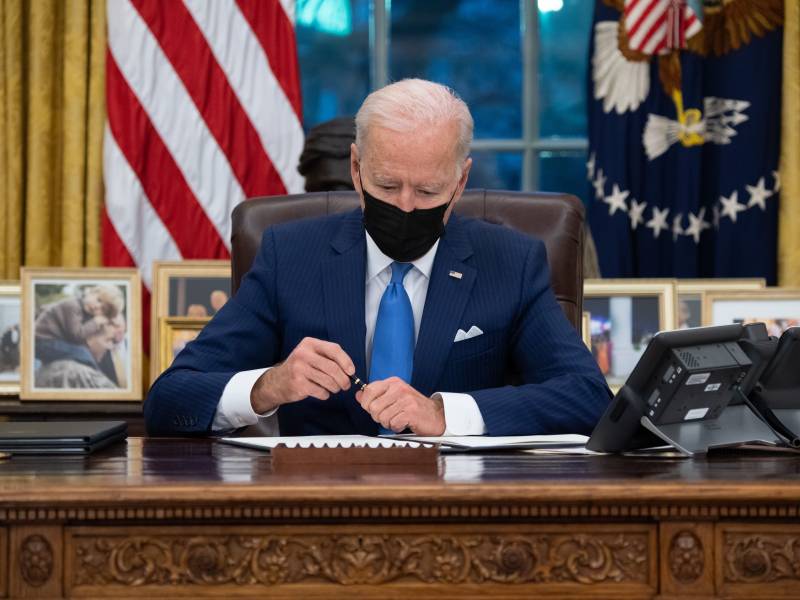President Biden signed three executive orders on Tuesday that he said he would lead to a more “fair, orderly, humane” immigration system, including one that would begin the difficult process of reuniting migrant children separated from their parents after crossing the United States border.
“There’s a lot of talk, with good reason, about the number of executive orders that I’ve signed. I’m not making new law — I’m eliminating bad policy,” Biden told reporters in the Oval Office before signing three actions to begin to roll back former President Donald Trump’s hard-line immigration measures.
One of the orders creates a task force to find ways to reunite children in the U.S. with their parents who have been deported without them — something Biden said was a “moral and national shame.”
The job is made challenging by a lack of records. Details of how reunifications will happen are still to be determined. The task force will make recommendations on how to do it, working with representatives of families and other stakeholders.

